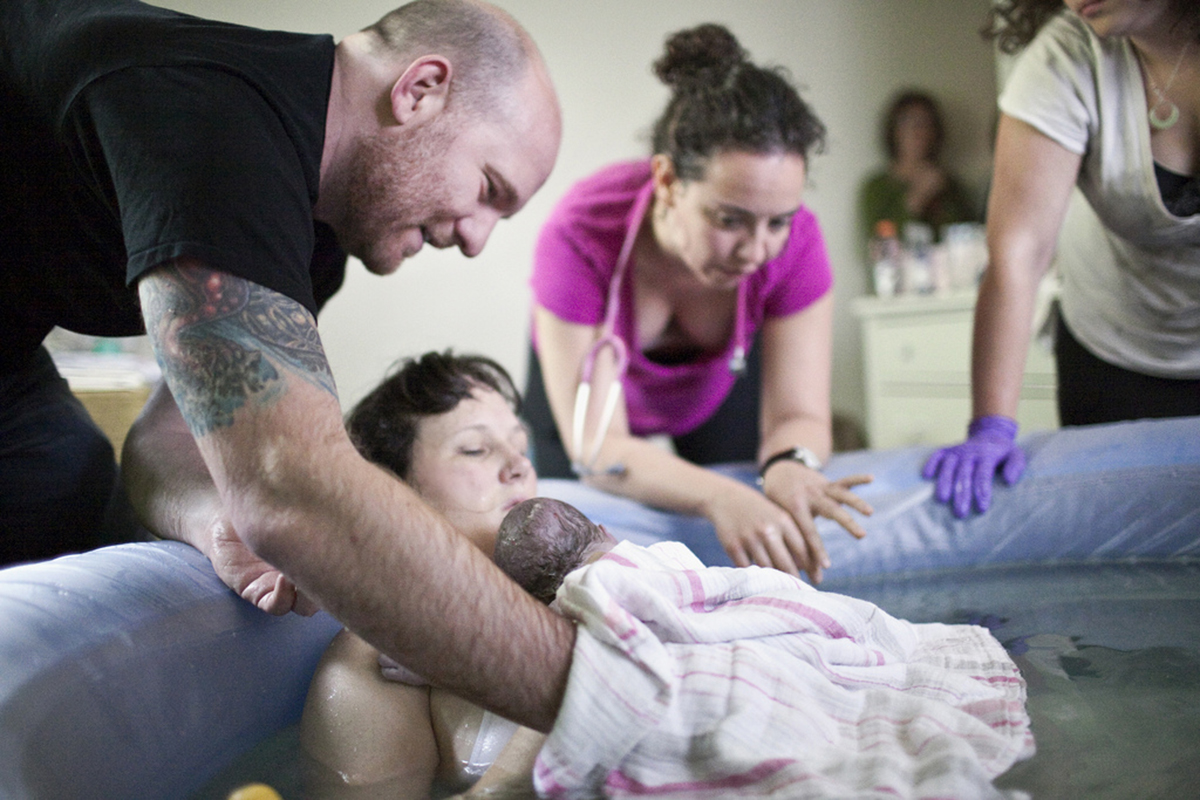Table of Contents
What role would a doula play in making a hospital TOLAC or RCS a more pleasant experience for the patient?
A doula is there for support – no matter what “type” of birth unfolds or is planned ahead of time. Just being there to check in with the mother, to see how she is emotionally coping and validating her feelings… it can make a big difference. Some nurses, midwives and doctors are also great at doing this, but they have other patients and other duties. A doula is there just for the mother (and her partner, too)… no matter how the mother is giving birth. Doulas can help in other ways, of course, like giving mom ideas for position changes, for example. But I personally believe our greatest asset is to just be there for the mother, emotionally.

Do you think women who choose a repeat c-section suffer negative psychological consequences? If so, how does this possibility influence their choices? And how do women who had an unsuccessful trial or labor after c-section feel? Is there anything we can do, as a society, to prevent women from feeling "broken" if they are not able to give birth vaginally?
I have had women write to me and share the sadness they felt when their birth turned out differently than they hoped. I’ve had women say they felt judged by other women if they’ve had a cesarean section. And in childbirth forums, I’ve seen this a lot as well, that women feel like failures because things don’t go as they hoped for their birth – sometimes it’s a smaller issue, sometimes it’s a larger issue. It’s quite heartbreaking. It makes me feel that sometimes the natural childbirth movement is doing more harm than good. Are we empowering women? Or are we setting them up for failure if things don’t go exactly as planned?
'The Way We Give birth Does Not Make Us Superior Or Inferior To Any Other Woman'
From the pain experienced in childbirth to the way women feel after birth to the recovery to the unexpected twists and turns that come up in each labor. It is all so very different. And it’s easy for women to get wrapped up in how things should be or how things should feel that it can have devastatingly negative emotional consequences. Home birth is often presented in such a romanticized way that women feel bad if they have anything less than a pain-free birth with candlelight and professional photography. Not just a certain "type" of birth is beautiful. Birth is beautiful for many reasons, process aside.
I think all of us have a part to play in helping women/mothers not feel "broken" for whatever reason. For care providers, it comes from having honest conversations and allowing women to share their hopes and fears, without making them feel bad for doing so. Just a simple "Are you OK with that? How does it make you feel?" can go a long way in helping a woman feel like she has some control in a very vulnerable situation. It comes from informed consent, no matter where or how a woman gives birth. It comes from the way we, as mothers, respond to each other. If a woman says "I had a cesarean section" it shouldn’t be met with pity and a "Do you feel cheated?" questioning or attitude. Pity can be just as destructive as blame.
The only thing we can do is change what we are putting out there. It comes from accepting that the way we give birth does not make us superior or inferior to any other woman, it doesn’t make us better or worse mothers. We don’t need to feel sorry for or jealous of anyone for how they gave birth. Our bond with our children is not dependent on a certain type of birth. The bond we have with our children is so much more than any one particular moment in time.
See Also: Vaginal Birth After C-Section - When Is It Safe?
We can’t control others. We can’t control the things other people say. We can’t control how they feel. We can only control ourselves and what we say. I have my own regrets for things I have said to other mothers, things that I’m certain probably made another mother feel bad. I find it helpful for myself to just remember: My child’s birth does not make me better or worse than any other mother.
- Photo courtesy of Raphael Goetter by Flickr : www.flickr.com/photos/goetter/1171788641
- Photo courtesy of BruceBlaus by Wikimedia Commons : en.wikipedia.org/wiki/File:Blausen_0223_CesareanDelivery.png
- Photo courtesy of eyeliam by Flickr : www.flickr.com/photos/eyeliam/7168286411

